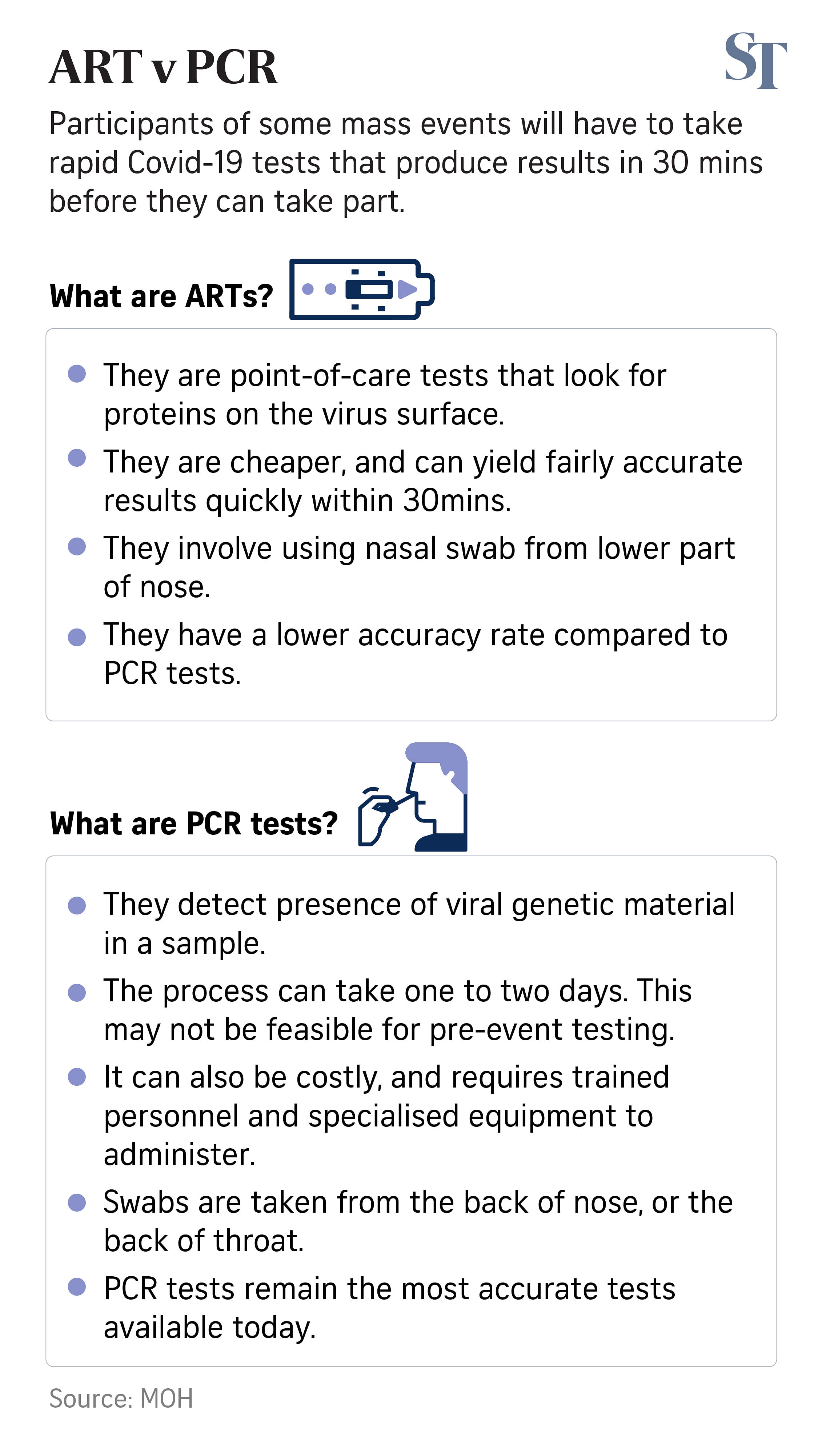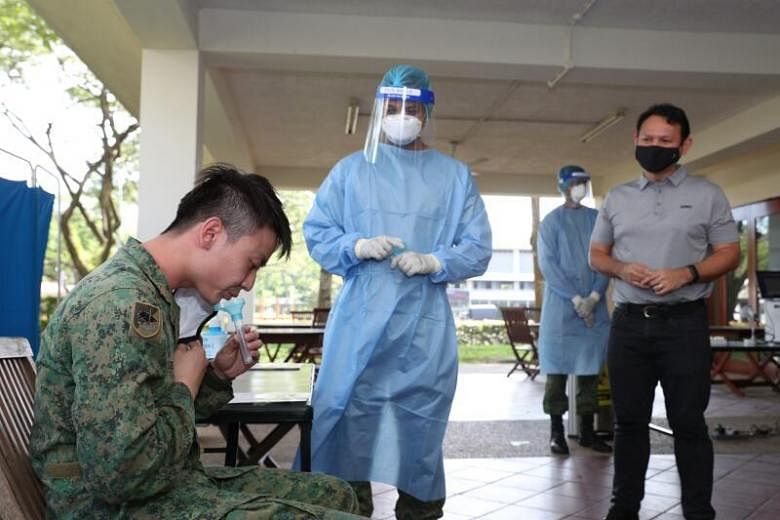SINGAPORE - The Singapore Armed Forces is trialling less invasive methods of collecting samples for Covid-19 testing and tests with rapid results as more training resumes.
Self-administered saliva collection and nasal swabs that are less uncomfortable as they reach only partially up the nose are among the methods being trialled in active SAF units, along with antigen rapid tests (ARTs).
ARTs are also being trialled at other mass events where participants must register a negative result before being admitted.
Such tests are suited for large-scale events, where faster turnaround is critical, including at basic military training graduation parades, which are currently held without invited guests.
From this month, all operationally-ready national servicemen (NSmen) from the army, as well as their regular trainers, have to undergo weekly polymerase chain reaction (PCR) tests through the usual nasal swabs when they are called for in-camp training.
Senior Minister of State for Defence Zaqy Mohamad said on Tuesday (Oct 27) that making use of new tests as they become available provides NSmen with the assurance that the SAF is doing its utmost to keep training safe, while allowing them to achieve training objectives.
"We want to create that safe atmosphere and environment for our troops to train. But I think what's more important is that if we're able to provide that safe environment, we're able to train at a much larger scale," he said, when responding to a question on weekly routine testing by the SAF.
He added that there is no timeline yet for the implementation of the less-invasive methods and rapid tests as different methods may have different considerations.
Mr Zaqy was speaking to reporters after a visit to the Infantry Training Institute at Jurong Camp II, where he met NSmen from the 791st Battalion, Singapore Infantry Regiment (791 SIR).
ARTs can give results more quickly, are cheaper and easier to administer than PCR tests although the latter are more accurate and remain the gold standard to confirm that someone has Covid-19.
About 300 full-time national servicemen and regulars have taken ARTs since September. About 400 have undergone the saliva collection trial.
The trial for oropharyngeal or mid-turbinate swabbing, in which a sample is taken from the back of the throat or partially up the nose, is in the pipeline.
Any servicemen will be able to collect his saliva sample but this will be under supervision. Taking a sample will mean a dry gargle and then spitting into a test tube through a funnel. At least 2ml of saliva is needed.
On the other hand, nasal swabs have to be done by medically-trained personnel.
Asked about the use of ARTs, Mr Zaqy said that graduation ceremonies or passing out parades could be one possible application.
"How far how soon, I think it's still something we are evaluating - these trials are under way... But before we roll out, I think we have to make sure that it is effective and meets our purposes."

Mr Zaqy disclosed that the SAF has not had any Covid-19 infection during in-camp training (ICT) so far.
It will continue to resume more such training as testing capacity improves, he said, adding that the number of ICTs are currently at about 50 per cent of their usual level.
About 600 NSmen from 791 SIR took the routine nasal swab test as they booked into camp for their two-week training which began on Monday (Oct 26).
Corporal First Class (NS) R Hariprasath said he was a bit worried at first about safety when he was called up but felt reassured when he observed the measures in place.
The NSmen were assigned into groups of up to 40 people for all activities, kept to safe distances and wore masks except during strenuous training or at meal times.
"I've never tried the newer collection methods, but I think it's a good idea because it's an easier process than having to be swabbed through the nose," said the 25-year-old logistics executive.


